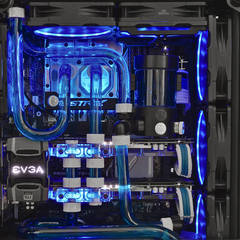Balanced System vs "Bottlenecked" System Upgrade Cycle
-
Topics
-
FlpDaMattress ·
Posted in Servers, NAS, and Home Lab0 -
3
-
2
-
OhYou_ ·
Posted in Peripherals0 -
SpaceOperator ·
Posted in Storage Devices10 -
DaMegaTaco ·
Posted in Troubleshooting0 -
12
-
0
-
MarcLmao ·
Posted in General Discussion3 -
0
-
-
play_circle_filled

Latest From ShortCircuit:
The World's Fastest CPU (Technically...) - Intel i9-14900KS


.png.255947720031a641abdac78e663b681c.png)






-2.thumb.jpg.bef7b20f2cd2e9f52d4edbbe5c26d90c.jpg)








Create an account or sign in to comment
You need to be a member in order to leave a comment
Create an account
Sign up for a new account in our community. It's easy!
Register a new accountSign in
Already have an account? Sign in here.
Sign In Now